From the Directors
AI4PH is focused on building capacity in AI and big data skills for transformative change in addressing population and public health challenges, and understanding how these tools impact health equity.
The goal is to establish a workforce of public health researchers and practitioners who develop and apply innovations in equitable artificial intelligence (AI) and machine learning (ML) to public health research, policy, and practice in Canada

Laura Rosella
Director & Mentor, PhD, MHSc
Biography
Laura Rosella is a Professor in the Dalla Lana School of Public Health, University of Toronto (UofT), where she holds the Canada Research Chair in Population Health Analytics and leads the Population Health Analytics Lab.
She holds Inaugural Stephen Family Research Chair in Community Health at the Institute for Better Health, Trillium Health Partners and scientific appointments at Vector and ICES. She leads training at the Temerty Centre for Artificial Intelligence Research and Education in Medicine and the Data Sciences Institute.

Lisa Lix
Director & Mentor, PhD
Biography
Lisa Lix is a Professor of Biostatistics in the Department of Community Health Sciences at the University of Manitoba, Canada, a Tier 1 Canada Research Chair in Methods for Electronic Health Data Quality, and Director of the Data Science Platform in the George & Fay Yee Centre for Healthcare Innovation at the University of Manitoba.
Her research expertise lies in statistical methods for complex healthcare data and patient-reported outcome measures.

Joon Lee
Director & Mentor, PhD
Biography
Dr. Joon Lee is the Director of the Data Intelligence for Health Lab and an Associate Professor of Health Data Science at Cumming School of Medicine, University of Calgary. He holds a PhD in Biomedical Engineering from the University of Toronto and a BASc in Electrical Engineering from the University of Waterloo, and completed a postdoctoral fellowship in Medical Data Science at MIT.
His research applies data science, machine learning, and artificial intelligence to a variety of problems in medicine and public health.

David Buckeridge
Director & Mentor, MD, PhD
Biography
David Buckeridge is a Professor in the School of Population and Global Health and the Chief Digital Health Officer at the McGill University Health Center. He holds a Tier-1 Canada Research Chair in Health Informatics and Data Science, leads the Surveillance Lab, and is the scientific lead of Data Management and Analytics for the Canadian Immunity Task Force.
He has a MD (Queen’s), a MSc in Epidemiology (Toronto), a PhD in Biomedical informatics (Stanford), and is a Fellow of the Royal College of Physicians of Canada.

Nathaniel Osgood
Director & Mentor, PhD
Biography
Nathaniel Osgood is Associate Professor in the Department of Computer Science, Associate Faculty in the Department of Community Health and Epidemiology, and Director of the Computational Epidemiology and Public Health Informatics Laboratory.
His research is focused on providing cross-linked system simulation, mobile data collection, and theory-informed machine learning/artificial intelligence tools, and Applied Category Theory to inform decision making in public health.

Lisa Fan
Director & Mentor, PhD
Biography
Dr. Lisa Fan’s research has been mainly focused on Data Science, Machine Learning and its applications. She and her students have studied and investigated various Machine Learning and Data Mining algorithms and applied them to different data analysis, such as online educational data, traffic data, and health data.
Recently she has focused her research on improving Data Science and AI methodology to overcome the challenges that are faced in using health data for research (forecasting, machine learning explainability, and privacy preservation).

Maureen Anderson
Director & Mentor, PhD
Biography
Dr. Maureen Anderson is currently serving as the Chief Population Health Epidemiologist, Saskatchewan Ministry of Health and Assistant Professor with the Department of Community Health and Epidemiology, USask. She spent the substantive portion of her career with the Canadian Public Health Service, Public Health Agency of Canada – affording her the opportunity to live and work across much of the country. Dr. Anderson is passionate about data for action to improve the health of the population of her home province of Saskatchewan.

Tracie Risling
Director & Mentor, BA, BSN, MN, PhD
Biography
Tracie Risling RN, PhD is an Associate Professor in the Faculty of Nursing at the University of Calgary and the President of the Canadian Nursing Informatics Association. Her program of health and nursing informatics research includes study on AI, social media, and co-designed access and use of digital health resources.

Sarah Nayani
Program Manager, PhD
Biography
Dr. Sarah Nayani completed her PhD at the University of York (UK) and has over ten years of health research and evaluation experience. Prior to this role she was research manager at the Fields Institute working on mathematical modelling of emerging infectious diseases. At Fields, she developed the Next Generation for Mathematics for Public Health Program and mainstreaming equity, diversity and inclusion in Mathematical modelling. She supported the Modelling Consensus Table of Ontario as Secretariat for the first year of the pandemic. Dr. Nayani has a wealth of experience working on health research in Canada and the UK.

Senthujan Senkaiahliyan
Internship Program Lead
Biography
Senthujan Senkaiahliyan has recently completed his Masters in Artificial Intelligence at Queen’s University and is currently obtaining his Masters in Health Administration at the University of Toronto. He has over 10 years of experience working in the healthcare system ranging from leading and managing ambulatory operations to coordinating large multi-centre AI research projects. He sits as a lead for the Health working group within the Ai4Good Foundation and has worked with the OECD on international PROMs tools. He is passionate about mentoring and translating AI knowledge within the healthcare space.

Hanako Smith
Administrative Assistant
Biography
Hanako is a PhD candidate in the Communication and Culture program at York University and Toronto Metropolitan University, focusing on patient-centric virtual care innovation and health communication. In previous roles, Hanako has administrated tri-council funded research projects and industry-partnered audience research projects. She has several years’ experience supporting large, multi-institutional research groups, and is enthusiastic about optimizing workflows. Hanako’s brings an applied background in internal and external communications to the AI4PH team.
Meet Our Mentors
To establish a workforce of public health researchers and practitioners who develop and apply innovations in equitable artificial intelligence (AI) and machine learning (ML) to public health research, policy, and practice in Canada.
Alton Russell, PhD
 Assistant Professor in the McGill School of Population and Global Health
Assistant Professor in the McGill School of Population and Global Health
Alton Russell leads the data-driven decision modeling lab, or D3Mod. His research aims to inform the efficient, effective, and equitable use of finite health resources using both data-driven methods (machine learning, Bayesian statistics) and mathematical modeling (simulation, optimization). He has worked in multiple public health areas including safe blood donation, COVID-19 surveillance, and cancer screening.
Amélie Quesnel-Vallée, PhD
 Professor, Department of Epidemiology & Department of Sociology, McGill University, Canada Research Chair in Policies and Health Inequalities
Professor, Department of Epidemiology & Department of Sociology, McGill University, Canada Research Chair in Policies and Health Inequalities
Amélie Quesnel-Vallée leads CAnD3, an international consortium of 38 academic, government, private and nonprofit organizations delivering training in support of data-driven decision making in ageing societies. Her research examines the contribution of policies to social inequalities in health over the life course and has been recognized through awards from the Fulbright Foundation, the American Sociological Association, the Population Association of America and the American Public Health Association.
Arif Jetha, PhD
 Scientist at the Institute for Work & Health and Associate Professor at the Dalla Lana School of Public Health. University of Toronto
Scientist at the Institute for Work & Health and Associate Professor at the Dalla Lana School of Public Health. University of Toronto
Arif Jetha’s research spans population health, systems science, and social policy to examine how the future of work affects vulnerable workers. He also examines how artificial intelligence will impact work environments and shape the health, safety and well-being of workers. He earned his PhD from the University of Toronto and holds an MSc from the London School of Economics and Political Science. He was the recent recipient of the six-year Stars Early Career Salary Award from the Arthritis Society, and he holds multiple Canadian Tri-Council grants as principal investigator.
Arjumand Siddiqi, Sc.D
 Professor, University of Toronto
Professor, University of Toronto
Arjumand Siddiqi is a Social Epidemiologist. She is Professor and Division Head of Epidemiology at the Dalla Lana School of Public Health, University of Toronto, where she holds the Canada Research Chair in Population Health Equity. She also holds cross appointments in Public Policy and Sociology at the University of Toronto, as well as an adjunct appointment at the Gillings School of Global Public Health, University of North Carolina – Chapel Hill.
Astrid Guttmann, MDCM MSc
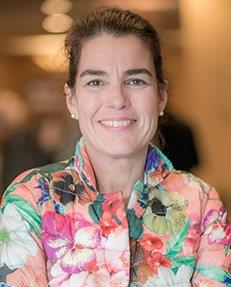 Chief Science Officer, ICES
Chief Science Officer, ICES
Astrid Guttmann is Chief Science Officer and a senior scientist at ICES. She is a Canada Research Chair in Child Health Services and Policy. Astrid is a paediatrician and senior scientist at Sickkids and a Professor of Paediatrics, Health Policy, and Public Health at the University of Toronto. She is also Co-Director of U of T’s Edwin SH Leong Centre for Healthy Children. Astrid’s research aims to improve child health through population-based studies that inform or evaluate health system programs and policies with a focus on health equity.
Aya Mitani, PhD, MPH
 Assistant Professor, Dalla Lana School of Public Health
Assistant Professor, Dalla Lana School of Public Health
I am an Assistant Professor in the Division of Biostatistics at the Dalla Lana School of Public Health at the University of Toronto. My research is focused on developing statistical methods to remove biases that emerge from informative cluster size, study design, missing data, or misclassification in multilevel observational studies and complex surveys. I have collaborated with researchers from various disciplines including oncology, nephrology, anesthesiology, and oral health.
Bradley Stoner, MD, PhD
 Professor and Head, Public Health Sciences, Dept of Public Health Sciences, Queen’s University
Professor and Head, Public Health Sciences, Dept of Public Health Sciences, Queen’s University
Medicine at Queen’s University in Kingston, Ontario, Canada. His research addresses social and behavioural determinants of STI/HIV risk, clinical epidemiology of STIs, and best practices for STI clinical service delivery. He previously served as medical director and PI of the St. Louis STD/HIV Prevention Training Center, and co-PI of the Midwest Capacity Building Assistance Network at Washington University in St. Louis. He is Past-President of the American Sexually Transmitted Diseases Association (ASTDA).
Brice Batomen, PhD

Assistant Professor in Methods in Epidemiology at the Dalla Lana School of Public Health
Brice Batomen is motivated by understanding the distribution and determinants of early mortality and morbidity Dr Batomen’s research is on injuries, the leading cause of death, disability, and health care costs for people under 40. His work has contributed to improve access to trauma care in Canada. His current research aims to exploit ML to identify characteristics of road networks that promote active transportation & safety using Google Street or similar services.
Bo Wang, PhD
 Assistant Professor, University of Toronto, Department of Laboratory Medicine & Pathobiology and Department of Computer Science
Assistant Professor, University of Toronto, Department of Laboratory Medicine & Pathobiology and Department of Computer Science
Dr. Wang is an Assistant Professor in the departments of Laboratory Medicine & Pathobiology and Computer Science at the University of Toronto. He is the inaugural Temerty Professor in AI Research and Education in Medicine. Dr. Wang is a Faculty Member at the Vector Institute and a CIFAR AI chair. He also leads the AI team in Peter Munk Cardiac Centre at the University Health Network. Dr. Wang and his team aim to develop first-in-class AI models with decision support to tailor patients’ care to their unique clinical and genomic traits.
Catherine Donnelly, BSc (OT), MSc, PhD
 Associate Professor, Queen’s University, Health Services and Policy Research Institute/School of Rehabilitation
Associate Professor, Queen’s University, Health Services and Policy Research Institute/School of Rehabilitation
Dr. Donnelly is the Director of Queen’s Health Service and Policy Research Institute and Associate Professor at the School of Rehab Therapy. Her research is focused on team-based primary care with an emphasis on understanding how interprofessional primary care teams support older adults and individuals with chronic conditions. She is also interested in performance indicators for primary care teams and most recently how teams are impacted by and responded to the COVID-19 pandemic.
Daniel Fuller, PhD
 Associate Professor and Canada Research Chair in Population Physical Activity, Memorial University of Newfoundland
Associate Professor and Canada Research Chair in Population Physical Activity, Memorial University of Newfoundland
Daniel Fuller is a Canada Research Chair in Population Physical Activity in the School of Human Kinetics and Recreation at Memorial University. His research is focused on using wearable technologies to study physical activity, transportation interventions, and equity in urban spaces. Dan has an MSc in Kinesiology from the University of Saskatchewan, a PhD in Public Health from Université de Montréal. He spends free time chasing his two rambunctious kids, and relives his youth playing recreational basketball on Mondays and Wednesdays.
Depeng Jiang, PhD
 Associate professor in Biostatistics in the Department of Community Health Sciences, Max Rady College of Medicine, Rady Faculty of Health Sciences at the University of Manitoba.
Associate professor in Biostatistics in the Department of Community Health Sciences, Max Rady College of Medicine, Rady Faculty of Health Sciences at the University of Manitoba.
Depeng Jiang leads the Biostatistics Group in the data science platform of George and Fay Yee Center of Healthcare Innovation (CHI) and has worked as a statistician at St Michael’s Hospital (2007-2010), LaMarsh Centre for Child & Youth Research at York University (2004-2017). Dr. Jiang has many years of experience providing statistical consulting to a range of clients and training students and researchers on statistical analyses. His focus is developing biostatistics methods and promoting the use of advanced statistical methods for health service research and program evaluation. His research interests include: (1) longitudinal data analysis and multilevel models; (2) person-oriented statistical approaches (3) structural equation models; (4) clinical trial design and impact evaluation. Dr. Jiang has well-established relationships through years of collaboration with multidisciplinary researchers and policymakers. His role as a methodologist and statistician has been acknowledged nationally by peers, with national and international recognition for his work in developing the theory and application of statistical learning methods to public health.
Doug Manuel, MD, MSc, FRCPC
 Senior Scientist, Ottawa Hospital Research Institute
Senior Scientist, Ottawa Hospital Research Institute
Dr. Manuel’s research combines his interests in public health, health care systems and primary care. The overarching question that spans his research is how to most effectively improve health of communities and reduce inequities. His studies typically focus on prevention such as immunization and healthy living. His lab also performs supporting studies that describe or predict the future health of Canadians and health care use. His life expectancy is 89 years, according to his team’s life expectancy calculator at ProjectBigLife.ca.
Elham Dolatabadi, PhD
 Applied Machine Learning Scientist, Vector Institute
Applied Machine Learning Scientist, Vector Institute
Elham is currently an applied ML scientist at Vector Institute and an Assistant Professor (status only) at IHPME. Elham’s work portfolio and research agenda are mainly focused on the adoption of ML and Deep Learning technologies for real-world needs. She has over 10 years of experience in leading various health AI projects in collaboration with public and private health sectors. Elham has well-established experiences in developing health AI training programs and graduate-level courses on ML and knowledge representation in the health domain.
Erica Di Ruggiero, MHSc., PhD
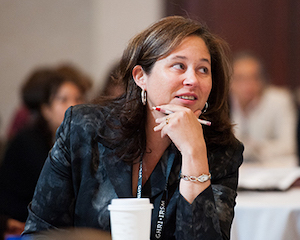 Associate Professor of Global Health, Dalla Lana School of Public Health
Associate Professor of Global Health, Dalla Lana School of Public Health
Erica Di Ruggiero is Associate Professor of Global Health, Division of Social & Behavioural Health Sciences Division, Institute of Health Policy Management & Evaluation, Director, Centre for Global Health at DLSPH. She examines how evidence affects global policy agendas related to employment and other determinants in the context of the Sustainable Development Goals. She evaluates population health interventions (policies, programs) and their impacts on health inequities. She completed her doctoral training in public health sciences
Frank Rudzicz, PhD
 Associate professor of Computer Science at Dalhousie University
Associate professor of Computer Science at Dalhousie University
Frank Rudzicz is co-founder of WinterLight Labs Inc., faculty member at the Vector Institute for Artificial Intelligence, Inaugural Chair of the Standards Council of Canada’s subcommittee on Artificial Intelligence, and CIFAR Chair in Artificial Intelligence. He is the recipient of the Young Investigator award from the Alzheimer’s Society of Canada, the Early Researcher award from the Government of Ontario, the Excellence in Applied Research award from National Speech-Language & Audiology Canada, and the Connaught Innovation Award.
His work is in machine learning in healthcare, especially in natural language processing, speech recognition, and surgical safety. His research has appeared in popular media such as Scientific American, Wired, CBC, and the New York Times, and in scientific press such as Nature.
Hailey Banack, PhD
 Assistant Professor, Epidemiology Division, Dalla Lana School of Public Health, University of Toronto
Assistant Professor, Epidemiology Division, Dalla Lana School of Public Health, University of Toronto
I am an epidemiologist interested in obesity and body composition, particularly in older adults. My research also includes a focus on bias analysis and causal inference to help answer the question “is this association a true causal effect or can it be explained by some form of bias?”. I am particularly interested in selection bias and information (measurement) bias.
Jean-Christophe Bélisle-Pipon, PhD
 Assistant Professor in Health Ethics, Faculty of Health Sciences, Simon Fraser University
Assistant Professor in Health Ethics, Faculty of Health Sciences, Simon Fraser University
Jean-Christophe Bélisle-Pipon’s research interests focus on the ethical, legal, and social implications (ELSI) of artificial intelligence (AI) and digital health through a variety of projects including, but not limited to the use of voice as a biomarker; human cell architecture for functional genomics; support of HTA agencies’ AI-specific decision-making; development of conversational agents for monitoring and clinical support of sex (re)offenders; and tool development for citizen engagement in AI governance.
Jaky Kueper, MSc, PhD
 PhD in Epidemiology & Computer Science, Western University
PhD in Epidemiology & Computer Science, Western University
Jacqueline (Jaky) Kueper is Research Lead for the AI Deployment and Evaluation (AIDE) Lab at the Institute for Better Health, Trillium Health Partners. She contributes towards developing and evaluating candidate AI tools; guiding safe, equitable deployment of AI within Trillium Health Partners; and strengthening internal and external collaborations. Previously, Jaky completed the first double PhD at Western University in Epidemiology and Computer Science, where her research developing AI and machine learning for primary care and population health was awarded the Governor General’s Gold Medal. She has also been involved in capacity building initiatives around AI for health practitioners in Canada and the United States, including serving as the inaugural TechForward Fellow at the College of Family Physicians of Canada.
Jason Morgenstern, MD, MPH
 Resident Doctor – Public Health and Preventive Medicine, McMaster University
Resident Doctor – Public Health and Preventive Medicine, McMaster University
Jason is a fifth-year medical resident specializing in Public Health and Preventive Medicine, based at McMaster University. His research interests focus on applying artificial intelligence and new data sources to public health. Previous projects include applying machine learning to predict cardiovascular disease with dietary data and reviewing machine learning applications to prediction in population health. Jason is working towards a career combining public health practice and research.
Jay Shaw, MPT, PhD
 Assistant Professor, Department of Physical Therapy, University of Toronto
Assistant Professor, Department of Physical Therapy, University of Toronto
Jay Shaw is Assistant Professor in the Department of Physical Therapy at University of Toronto with cross-appointment to the Institute of Health Policy, Management and Evaluation. He serves as Research Director of Artificial Intelligence (AI), Ethics & Health at the University of Toronto Joint Centre for Bioethics, and is adjunct Scientist at the Women’s College Hospital Institute for Health System Solutions and Virtual Care. Jay’s program of research addresses the implementation and ethical implications of innovations in health care.
Jeff Brook, M.S., Ph.D.
 Assistant Professor, Dalla Lana School of Public Health
Assistant Professor, Dalla Lana School of Public Health
Formerly a research scientist at Environment and Climate Change Canada (25 yrs), contributing to the development of Canadian policy. Research interest includes environmental exposure assessment with expertise in air quality. Scientific director of the Canadian Urban Environmental Health Research Consortium (CANUE.ca) and lead on the environmental component of Canada’s largest birth cohort, known as CHILD. Led the 15 year Gene-Environment program in AllerGen, a Canadian Network of Centres of Excellence.
Jennifer Gibson, MA, PhD
 Sun Life Financial Chair in Bioethics and Director, Joint Centre for Bioethics; Associate Professor, Division of Clinical Public Health, Dalla Lana School of Public Health
Sun Life Financial Chair in Bioethics and Director, Joint Centre for Bioethics; Associate Professor, Division of Clinical Public Health, Dalla Lana School of Public Health
Jennifer has a PhD in Philosophy (bioethics and political theory). She studies the role and interaction of values in health policy of contemporary health institutions and systems. Jennifer has advised governments and policymakers on topics such as the COVID-19 pandemic, medical assistance in dying, and resource allocation. She founded the JCB’s Ethics & AI for Good Health program and is co-author of the “Report of the WHO Expert Group on Ethics and Governance of AI for Health”. Currently, she is Vice-Chair of the Ontario Health Data Council.
Joan Tranmer, RN, MSc, PhD
 Professor, School of Nursing, Queen’s University
Professor, School of Nursing, Queen’s University
Joan Tranmer is a Professor and the Sally Smith Chair in the School of Nursing at Queen’s University. She is also the Site Director for ICES-Queen’s (formerly known as the Institute for Clinical Evaluative Sciences) and core faculty within the Health Services Policy Research Institute (HSPRI). Dr. Tranmer is a health services researcher with a specific focus on models of care that support optimization of the nursing role for persons with complex health conditions.
John McLaughlin, BSc, MSc, PhD
 Professor, Dalla Lana School of Public Health, University of Toronto
Professor, Dalla Lana School of Public Health, University of Toronto
Professor of epidemiology at Dalla Lana School of Public Health, and Executive Director of the Canadian Partnership for Tomorrow’s Health. More than 30 years experience leading interdisciplinary health research teams, and executive level management, knowledge translation, scholarly work and service. Served as Chief Science Officer and Senior Scientist at Public Health Ontario, and previously in leadership roles in several U of T affiliated organizations. Research resulting in more than 325 publications, with integration of diverse approaches in large population studies, to improve disease prevention and health promotion.
Joseph Jay Williams, PhD
 Assistant Professor in Computer Science at the University of Toronto
Assistant Professor in Computer Science at the University of Toronto
Joseph Jay Williams’ Intelligent Adaptive Interventions research group designs real-world digital interventions with the goal of getting people to learn and change their behaviors. These span text-messaging services for mental wellbeing and physical exercise, prompts to reflect on making plans, and chatbots for motivation and mindfulness. We focus on using randomized micro-experiments in the field to perpetually enhance and personalize experiences, by bridging human-computer interaction, cognitive/clinical/social psychology, statistics, machine learning, and other disciplines. Joseph is an Assistant Professor in Computer Science with courtesy appointments in Psychology, Economics, Mechanical & Industrial Engineering, Vector Institute for Artificial Intelligence, and Statistical Sciences.
Jude Kong, PhD
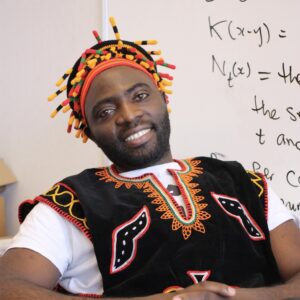 Professor in the Mathematics & Statistics Department at York University and the founding Executive Director of the Africa-Canada Artificial Intelligence and Data Innovation Consortium (ACADIC)
Professor in the Mathematics & Statistics Department at York University and the founding Executive Director of the Africa-Canada Artificial Intelligence and Data Innovation Consortium (ACADIC)
Jude Kong the founding Executive Director of the Africa-Canada Artificial Intelligence and Data Innovation Consortium (ACADIC) and Executive Director of the Global South Artificial Intelligence for Pandemic and Epidermic Preparedness and Response Network (AI4PEP). An expert in AI, data science, mathematical modelling, infectious disease modelling and mathematics education, his principal research focuses on the use of AI, data science, mathematical models and other quantitative methods to improve decision-making for clinical public health. During the COVID-19 pandemic he led an interdisciplinary team of around 52 researchers from academic and government institutions in nine African countries that have been using AI to manage the spread of COVID-19. Awarded the York Research Leader Award in 2020, he was also spotlighted among Canadian Innovation Research Leaders 2021 for his work with ACADIC. In 2021 he was spotlit as a Change Maker by “People of YU” for his work in helping others learn mathematical concepts and encouraging them to find their passion and achieve more than they thought was possible and for enumerating positive change and inspiring Black students to aspire. He was awarded the York University 2022 Faculty of Science Early Career Researcher Award and is Area Editor of the Data & Policy Journal.
Ketan Shankardass, PhD
 Associate professor in the Department of Health Sciences at Wilfrid Laurier University
Associate professor in the Department of Health Sciences at Wilfrid Laurier University
Ketan Shankardass leads the Health Equity Systems Interventions lab. He is also an associate scientist at the MAP Centre for Urban Health Solutions at St. Michael’s Hospital. He received an MHSc in Community Health and Epidemiology from the University of Toronto and a PhD in Epidemiology from the University of Southern California. Dr. Shankardass draws on social epidemiology, health geography and community psychology to understand the drivers of health inequity from cell to society. He views research as a way to support the uptake of more equitable health systems.
On the SCERN project (https://specialprojects.wlu.ca/scern/), he is working with a team of epidemiologists, geographers, psychologists and information scientists to develop information tools and methods for neighbourhood resilience planning, in collaboration with the City of Hamilton (Ontario, Canada). This research includes a focus on distilling place-based emotional content (thematic and spatially-referenced) from personal expressions on digital social platforms (“geo-social media”) to identify hotspots of chronic stress and learn about how individuals’ social and physical environments impact their wellbeing.
Kim McGrail, MPH, PhD
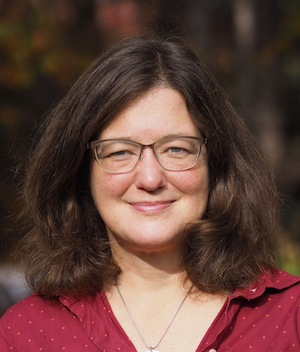 Professor, UBC – Centre for Health Services and Policy Research
Professor, UBC – Centre for Health Services and Policy Research
Kimberlyn McGrail is a Professor in the UBC School of Population and Public Health and Centre for Health Services and Policy Research, Director of Research for UBC Health, and Scientific Director of Population Data BC and Health Data Research Network Canada. Her research interests are quantitative policy evaluation and all aspects of population data science. She is currently involved in several provincial, pan-Canadian and international collaborations related to data governance.
Kuan Liu, MMath, PhD
 Assistant Professor, Institute of Health Policy, Management and Evaluation
Assistant Professor, Institute of Health Policy, Management and Evaluation
Kuan Liu’s research program targets the development and application of innovative statistical methodologies to analyze health data with complex structures. Motivated by applications in clinical and public health research, her areas of methodological interest include causal inference, Bayesian statistics, longitudinal data analysis, bias analysis, and semi-parametric/parametric joint modelling. She has collaborated with an extensive network of researchers in various disciplines spanning medicine and public health.
Lise Gauvin, PhD FCAHS
 Full Professor, Department of Social and Preventive Medicine, School of Public Health, Université de Montréal, Researcher & Associate Scientific Director for Population Health Research, Centre de recherche du Centre Hospitalier de l’Université de Montréal (CRCHUM)
Full Professor, Department of Social and Preventive Medicine, School of Public Health, Université de Montréal, Researcher & Associate Scientific Director for Population Health Research, Centre de recherche du Centre Hospitalier de l’Université de Montréal (CRCHUM)
Lise Gauvin completed her doctorate in physical activity sciences in 1985 at the Université de Montréal and has held academic positions at Queen’s University, Concordia University, and Université de Montréal. Between 2008 and 2013 she held a CIHR-funded Applied Public Health Chair. In September 2015, she was named a Fellow of the Canadian Academy of Health Sciences. Her research focuses on the socio-environmental determinants of physical activity and healthy eating, the reach, acceptability, and impact of interventions to promote physical activity and healthy eating in urban areas, and social inequalities in health. She uses innovative data collection and analysis techniques including ecological momentary assessment, multilevel modeling, and natural experiments while acquiring new skills in machine learning and text analysis. Dr Gauvin is actively engaged in knowledge transfer and exchange activities developed in partnership with researchers, policy-makers, and practitioners working in public health.
Li Xing, PhD
 Assistant Professor in the Department of Mathematics and Statistics at the University of Saskatchewan and adjunct faculty member at the University of Victoria
Assistant Professor in the Department of Mathematics and Statistics at the University of Saskatchewan and adjunct faculty member at the University of Victoria
Li Xing worked as a Ph.D. reviewer at Food and Drug Admission, US (2016-2017). Dr. Xing obtained her Ph.D. degree in statistics from the University of British Columbia in 2014 and worked as a post-doctoral fellow at Indiana University and Purdue University at Indianapolis (2014-2016) and the University of Victoria (2017-2019). Her main research interests are developing novel statistical machine-learning tools for complex data, especially genomic data and experimental design for observational studies and clinical trials. More detail can be found on her website: https://ubclxing.github.io/.
Mabel Carabali, MD, MSc, PhD
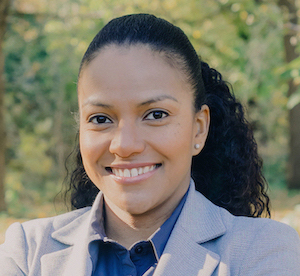 Assistant Professor
Assistant Professor
Dr. Carabali is an epidemiologist with over 14 years of experience in international epidemiological and biomedical research of infectious diseases and social epidemiology. Her research interests includes the development and application of methodological approaches to account for measurement error to improve the use of surveillance data, methods to assess health inequalities including decomposition and mediation analyses, and Bayesian spatiotemporal analyses in the context of infectious diseases.
Michael Chaiton-Murray, PhD
 Independent Scientist, CAMH
Independent Scientist, CAMH
Michael Chaiton is an Associate Professor in the Dalla Lana School of Public Health at the University of Toronto and Director of Research at the Ontario Tobacco Research Unit with a focus on the effects of policy on behaviour change. He is currently leading machine learning projects that aim to examine the within- and between- study predictors of vaping dependence and use, predict access to mental health care among LGBTQ2S populations and use AI/ML to examine trends in mental health and substance use in the population with a health equity lens.
Nancy Ondrusek, PhD, MSc, MSc
 Director, Research and Ethics Services, Public Health Ontario
Director, Research and Ethics Services, Public Health Ontario
Nancy Ondrusek is Director, Research and Ethics Services at Public Health Ontario, providing leadership for the development, implementation and management of research and ethics policies, practices, products and services. She is an Adjunct Lecturer in the Clinical Public Health Division of the Dalla Lana School of Public Health. Nancy obtained a masters and doctorate through the Institute of Medical Sciences and the Joint Center for Bioethics at the University of Toronto and a masters in genetics at Brock University.
Nicholas King, PhD
 Associate Professor, McGill University
Associate Professor, McGill University
I am an associate professor at McGill University. My primary research areas are public health policy, ethics, and epistemology. I study the ways that ‘black boxes’ of all sorts – from seemingly objective measures of health and health inequalities, to complex algorithms – are shaped by human interests and hidden value judgments, which in turn shape individual decisions, collective behaviors, and public policies.
Olli Saarela, MSocSc, PhD
 Associate Professor, Dalla Lana School of Public Health, University of Toronto
Associate Professor, Dalla Lana School of Public Health, University of Toronto
Olli Saarela is an Associate Professor at Dalla Lana School of Public Health, University of Toronto. Before joining U of T, he completed his PhD at University of Helsinki, Finland, followed by a postdoctoral fellowship at McGill University. He is a biostatistician with methodological research interests in causal inference, Bayesian inference and survival analysis.
Pingzhao Hu, PhD
 Associate Professor in the Department of Biochemistry and the Department of Computer Science (Cross-Appointed) in Schulich School of Medicine & Dentistry at Western University.
Associate Professor in the Department of Biochemistry and the Department of Computer Science (Cross-Appointed) in Schulich School of Medicine & Dentistry at Western University.
Pingzhao Hu obtained his PhD in computer science from York University. He has published over 160 peer-reviewed scientific articles in machine learning and statistical approaches related to complex health data analysis with over 6500 citations. He is a receipt of The Interstellar Initiative Award funded by the New York Academy of Sciences and Japan Agency for Medical Research and Development. Dr. Hu has outstanding experience in mentoring trainees at different levels. Many of his trainees have received international and national awards, been accepted into top graduate schools (like Oxford, Cambridge, UCLA, CMU, Toronto, UBC, McGill), and employed in high-tech companies (like Google, Microsoft, Amazon). More information about Dr. Hu’s research can be found at https://phulab.org/.
Roxana Sultan, MSc, MHSc
Chief Data Officer and VP, Health, Vector Institute
Roxana Sultan is the Chief Data Officer and VP, Health at the Vector Institute. She leads Vector’s strategic contributions to Canada’s health sector and drives applications of AI to life sciences, fostering research and initiatives to advance the Ontario health ecosystem. She is an Adjunct Lecturer with the Institute of Health Policy, Management, and Evaluation at the UofT and teaches a graduate course on intelligent medicine, machine learning, and knowledge representation. She is also the Vice Chair of the Board of the Canadian Cancer Society – Ontario Division.
Sajjad Ghaemi, PhD
 Adjunct Professor at the Department of Mathematics and Statistics at York University, and a Research Scientist at the NRC-Fields Mathematical Sciences Collaboration Centre.
Adjunct Professor at the Department of Mathematics and Statistics at York University, and a Research Scientist at the NRC-Fields Mathematical Sciences Collaboration Centre.
Sajjad Ghaemi is leading AI related projects in various domains including SARS‑CoV‑2 vaccination and immunity modelling and generative AI models for quantum-enhanced material design. Prior to joining the NRC, he was a postdoctoral fellow at Stanford University, where he developed AI models for multiomics data. At the NRC‑Fields Collaboration Centre, Dr. Ghaemi is pursuing interdisciplinary research for solving various cutting-edge and high-tech problems in science and industry, leveraging machine learning and AI.”
Scott Weichenthal, PhD
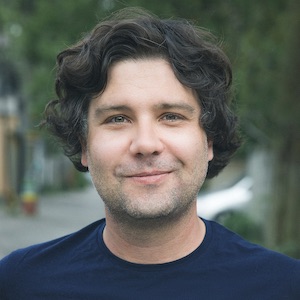 Associate Professor, McGill University
Associate Professor, McGill University
My research program is dedicated to identifying and evaluating environmental risk factors for chronic illnesses such as cancer and cardiovascular disease. As part of this process, I develop deep learning models to estimate environmental exposures using street-level/satellite images and audio data (i.e., city sounds).
Tyler Williamson, PhD
 Acting Director, Centre for Health Informatics, University of Calgary
Acting Director, Centre for Health Informatics, University of Calgary
Tyler Williamson is an Associate Professor of Biostatistics, and Acting Director of the Centre for Health Informatics in the Cumming School of Medicine. As a member of the O’Brien Institute of Public Health, the Alberta Children’s Hospital Research Institute, and the Libin Cardiovascular Institute his research spans many disciplines. Dr. Williamson’s research program focuses on using and developing novel methods for improving primary care electronic medical record and health administrative data for chronic disease surveillance and research.
Venkata R. Duvvuri, Ph.D., MPH
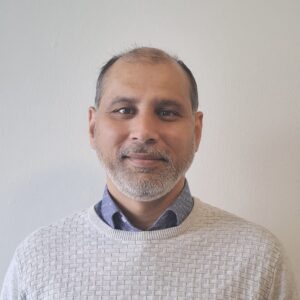 Scientist (machine learning) at Public Health Ontario and an assistant professor in the Department of Laboratory Medicine and Pathobiology at the University of Toronto.
Scientist (machine learning) at Public Health Ontario and an assistant professor in the Department of Laboratory Medicine and Pathobiology at the University of Toronto.
Venkata Duvvuri leads an interdisciplinary research program advancing genomic surveillance research, development, and practice. His research, broadly termed “AI in Public Health Microbiology”, that focuses on 1) Data Science, AI, and Machine Learning (ML): Incorporate data science and ML into public health microbiology and genomics to develop disease transmission, track AMR, and risk discovery, assessment, and prediction models. 2) Applied Genomic Epidemiology: Combined genomic and epidemiological methods (phylodynamics) to study epidemic potential and disease transmission and evaluate intervention programs. 3) Immuno-informatics: Identify biomarkers from pathogen genomes to develop novel and rapid molecular diagnostic tests and vaccines. His research significantly contributed to understanding respiratory viral pathogens’ emergence, spread dynamics, clinical outcomes, and biomarkers for diagnostics and vaccines: pandemics (2009 influenza and SARS-CoV-2), epidemics, and other emerging viruses and bacteria. He has authored >40 articles in highly reputed journals: Venkata R. Duvvuri | Public Health Ontario.
Xuekui Zhang, PhD
 Assistant Professor at University of Victoria
Assistant Professor at University of Victoria
Xuekui Zhang is a Canada Research Chair (Tier II) in Bioinformatics and Biostatistics (2017-2027), and a Michael Smith Health Research BC Scholar (2022-2027). Dr. Zhang’s research focuses on developing and applying novel biostatistics methods and software tools to solve real-world problems in medical research. His research interests include (1) Bioinformatics, (2) Biostatistics, (3) Machine learning, (4) Design of clinical trials, (5) COPD. More information about Dr. Zhang can be found at his personal website https://ubcxzhang.github.io/
Yue Li, PhD
 Assistant Professor, School of Computer Science, McGill University
Assistant Professor, School of Computer Science, McGill University
Yue Li obtained his PhD in Computer Science and Computational Biology at University of Toronto in 2014. Prior to joining McGill, he was a postdoctoral associate at Computer Science and Artificial Intelligence Laboratory (CSAIL) at MIT (2015-2018). His research is focused on developing interpretable probabilistic learning models and deep learning models to model electronic health record and genomics data. By systematically integrating multimodal and longitudinal data, his aim is to have impactful applications in computational medicine including building intelligent clinical recommender systems, forecasting patient health trajectories, personalized polygenic risk predictions, characterizing multi-trait functional genetic mutations, and dissecting cell-type-specific regulatory elements that are underpin complex traits and diseases in human.
Zahra Shakeri, PhD
 Assistant Professor of Health Informatics and Information Visualization and the director of the HIVE Lab at the Dalla Lana School of Public Health, University of Toronto
Assistant Professor of Health Informatics and Information Visualization and the director of the HIVE Lab at the Dalla Lana School of Public Health, University of Toronto
Zahra Shakeri received her PhD in Computer Science from the University of Calgary and was a Postdoctoral Fellow at Gehlenborg Lab in the Department of Biomedical Informatics at Harvard Medical School. Dr. Shakeri’s research centers on health informatics, health data science, information visualization, precision (public) health, digital health, and social media analysis.
University Partners
Public Health Partners
AI & Data Partners
Program updates direct to your inbox
About
AI4PH is focused on building capacity in AI and big data skills for transformative change in addressing population and public health challenges, and understanding how these tools impact health equity.

Contact
155 College St, 6th Floor
University of Toronto,
Toronto, ON M5T 3M7
Supported By

Copyright © 2022 Artificial Intelligence for Public Health



























